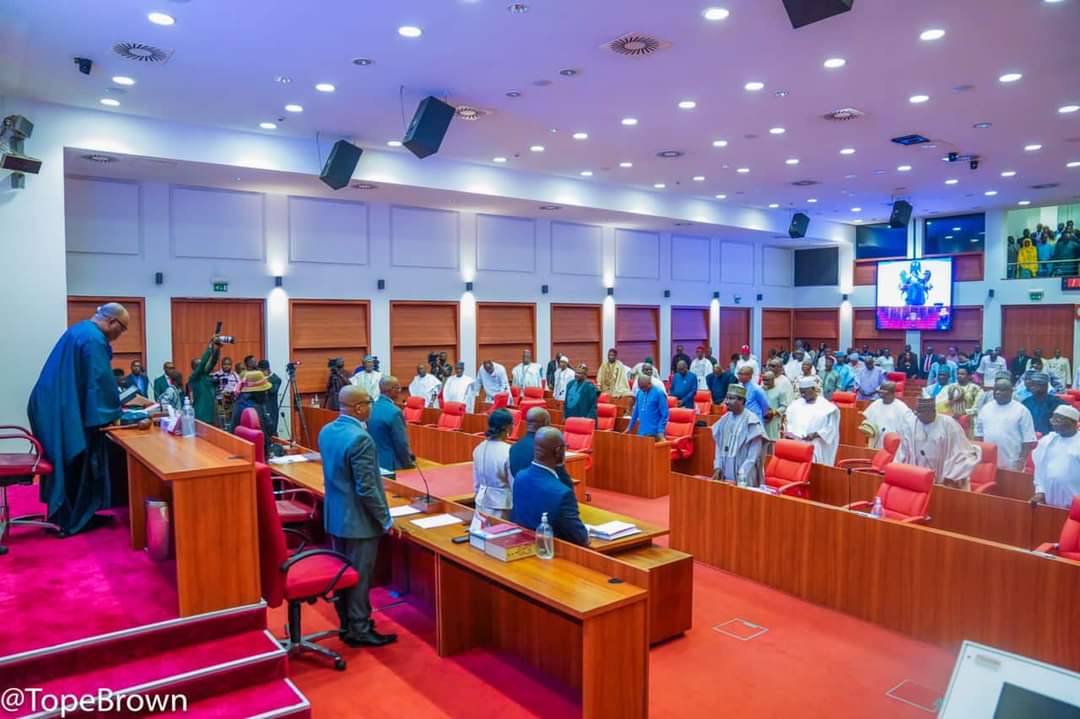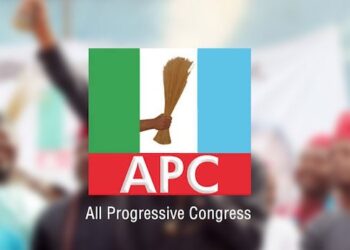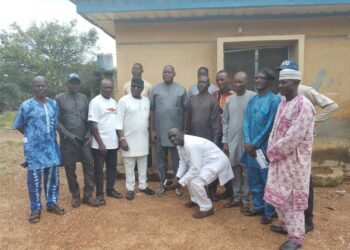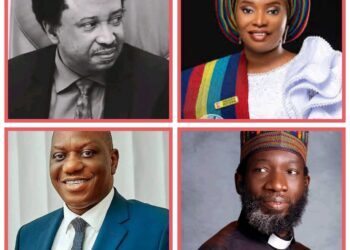The Nigerian Senate, fully equipped with its newly elected principal officers, said it stand prepared to receive President Bola Ahmed Tinubu’s list of appointees, including service chiefs and ministers, for the purpose of screening and confirmation.
With the composition of the principal officers, the Senate said it eagerly awaits official communication from the President to carry out this crucial task.
During a plenary session, Senate President Godswill Akpabio disclosed letters received from members of the opposition and the ruling party, containing their mutually agreed-upon list of principal officers.
The newly appointed Senate Leader is Opeyemi Bamidele (APC Ekiti Central, Southwest), followed by Dave Umahi (APC Ebonyi South, Southeast) as Deputy Senate Leader, Ali Ndume (APC Borno South, Northeast) as Chief Whip, and Lola Ashiru (APC Kwara South, Northcentral) as Deputy Chief Whip.
The opposition caucus announced Simon Devou Nwadkwon (PDP Plateau North, North Central) as Minority Leader, Oyewumi Olarele (PDP Osun West, South West) as Deputy Minority Leader, Darlington Nwokocha (LP Abia Central, South East) as Minority Whip, and Rufai Hanga (ANPP Kano Central, North West) as Deputy Minority Whip.
Senate’s Readiness for Legislative Activities
In a press conference following the plenary session, Senate Leader Opeyemi Bamidele expressed the Senate’s readiness to undertake full legislative activities. Although acknowledging the need to constitute committees before the month’s end, Bamidele emphasised that the emergence of the principal officers within the 10th Senate was accomplished seamlessly and perceived as a crucial assignment that demands their utmost dedication. Their primary objective is to ensure the welfare and benefit of Nigerians.
Involvement Of Political Parties In Principal Officers Selection
Bamidele revealed that the emergence of principal officers occurred through the active participation of various political parties. In the case of the opposition, six political parties and 56 members were involved in the decision-making process. Thirty-eight opposition lawmakers endorsed the list of principal officers, thereby cementing their position within the Senate. The selection process was conducted during an executive session, resulting in a collective decision that fostered unity and harmony among lawmakers, regardless of their political affiliations.
Immediate Goals And Committee Formation
Looking forward, the Senate’s immediate focus is to swiftly commence its activities. The initial objective is to establish the first six committees, including the election committee, before subsequently forming other committees, including the standing committees. They aim to achieve this by July to ensure the smooth functioning of the Senate. Additionally, the Senate eagerly awaits communication from President Tinubu regarding his appointees, as they are ready to undertake the vital task of screening and confirming service chiefs and other urgent appointments.
Addressing Concerns Of Influence And Party Consensus
Responding to queries about potential influence from the Villa, Bamidele clarified that no list had been received from the presidency.
However, he acknowledged that it is natural for stakeholders to show interest in leadership positions when a single party controls both the executive and legislative branches of government.









